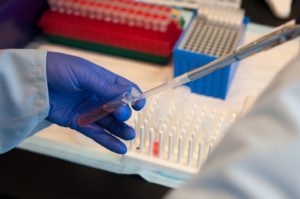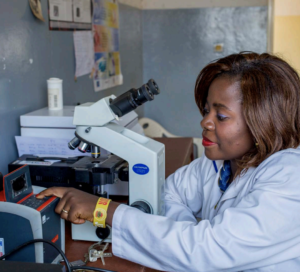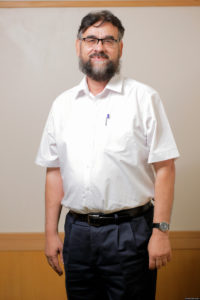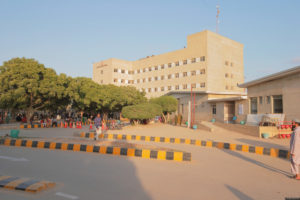SEATTLE, WA, March 28, 2020.
Published date: 1:07 PM (PACIFIC TIME)
Last updated: Tuesday, March 31, 2020. 9:30 AM (PACIFIC TIME)
On March 4, 2020, I reached out to Taylor Soper of GeekWire, the superhero of the tech world, to meet for coffee. Our plans got pushed as he was working from home (WFH). Who would have thought this mundane acronym would blow up to be the buzzword it is today. What we witnessed that day was stunning and unforgettable — a domino effect of sorts. In matter of minutes, as I read on GeekWire, Seattle corporate giants Microsoft, Facebook, and Amazon started shutting their offices one after another, instructing their employees to “WFH”.
UNITED STATES/GLOBAL OVERVIEW
None of us could ever fathom the magnitude of coronavirus and how it shook the United States and the world, erupting an unprecedented global public health and economic crisis, unparalleled to anything we have seen. As of now, the United States has the most number of coronavirus in the world, exceeding China and Italy. According to John Hopkins University (JHU) U.S. death toll is over 3000. Initially, Washington State was the epicenter in the U.S. A week ago it was California, and now New York. The new hot spots are Detroit, Chicago and New Orleans. Globally, the number of cases stand well above half a million – over 800,000.
On Thursday, Washington State Governor Jay Inslee said, “It is absolutely necessary that we dramatically increase our hospital capacity, or we will be overwhelmed if we don’t get this curve down to negative very, very quickly.” Meanwhile, the U.S. Army Corps of Engineers and FEMA (Federal Emergency Management Agency) is setting up a military field hospital at Seattle’s CenturyLink field to help the local hospital’s capacity in handling the growing numbers of coronavirus patients. Three hundred soldiers from Fort Carson, Colorado were deployed to staff the hospital. It is expected to create at least 150 hospital beds for cases not related to coronavirus.
Seattle Mayor Jenny Durkan was on CNN Saturday morning, “We still almost have no testing in the Seattle area. We are running blind in many ways.” she said, adding, “The actions we take are largely because we have some of the great research scientists here today. We cannot win if we have the “Hunger Games” state versus state, city versus city. We got to come together as a country and the nation has to lead.” Washington n

Earlier on Friday, New York’s Governor Andrew Cuomo shared his continued two-pronged strategy to fight coronavirus in New York: Flatten the curve. Increase hospital capacity. The only way to halt this pandemic is to starve it. Slow the spread. Hence the social distance practicing, stay at home measures, closing down bars, restaurants and schools is the way to go.
Unfortunately some young people are still not practicing social distancing. Dr. Anthony Fauci, director of the National Institute of Allergy and Infectious Diseases and White House health advisor talked to NBA star Steph Curry via Instagram Live on Thursday in an effort to help Curry’s young fans understand why social distancing is so pivotal in flattening the curve and slowing the rate of coronavirus spread. Just today President Trump extends social distancing guidance until end of April.
This situation looks damning, but there is a glimmer of hope. So here’s some good news. According to JHU, total number of coronavirus recovery cases in U.S. are above 5000, and globally more than 170,000. More good news? Keep reading!
Coronavirus spread
King County is lucky to have leading researchers, scientists proactively looking for ways to contain the spread of coronavirus. Just last week, the Seattle Flu Study partnered with Public Health – Seattle and King County to launch SCAN (Seattle Coronavirus Assessment Network). It will help public health to get a clearer picture of how pervasive this virus is within the community.
Also, a small pilot program of 2018 flu study was adapted and customized to combat coronavirus as soon as the first U.S. case was detected in Snohomish County. They’re partnering with Public Health — Seattle & King County, the Washington State Department of Health, and the Centers for Disease Control and Prevention.
“The spread of the coronavirus will be exponential – which is bad. But its inevitable decline will also be exponential, which is good, emphasized Seth Sohostak, Senior Astronomer at SETI Institute. Moreover, China announced this week it now has almost no local transmission of the coronavirus. China has also taken even more strict measures by temporarily suspending almost all entry of international flights into the country. It’s by far the most stringent travel ban since the coronavirus pandemic.
N95 Masks, Ventilators Supply, SCAN
What is the current public health crisis? Lack of ventilator supply, N95 masks and hospital resources. Is there anything happening to meet that demand? Yes. 3M, a large manufacturer of protective N95 masks for medical workers is shipping half a million masks to New York and Seattle on Monday. Here are the stats: Their factories in South Dakota and Nebraska are producing 35 million N95 masks a month, 90 percent of them are for health-care workers. In addition, Seattle-based Nordstrom says it will sew more than 100,000 medical masks, their teams in Washington, Oregon, Texas and California are involved in this project.
Let’s talk about ventilators supply. Ford, GE are planning to produce 50,000 ventilators in 100 days. Also, a small Washington company called Ventec Life Systems is working around the clock to meet the evergrowing surge in demand for ventilators. They are now on the front lines of the worldwide COVID-19 outbreak. The manufacturers say their buyers are from 65 different countries.
Seattle’s global strength
I have a lot of faith in Seattle’s leading global health organizations that are pioneers of vaccination innovations, leading the way in providing grants, funds, solid advocacy, public health policies and initiatives to combat COVID-19. Here is what Bill & Melinda Gates Foundation and PATH Seattle are working on. In addition, to get a global perspective, we got in touch with Dr. Bari, CEO of Pakistan’s Indus Hospital Karachi. He updates us on The Hospital’s COVID-19 combating efforts.
SEATTLE, WASHINGTON


Seattle Global Strength #1
Bill Gates, Melinda Gates, Bill & Melinda Gates Foundation
Last month the Gates Foundation said it would spend up to $100 million to stem the spread of the novel coronavirus. Bill Gates has also been warning us about the threat of a pandemic for years now. In 2015, he said during a TEDTalk “If anything kills over 10 million people in the next few decades, it’s likely to be a highly infectious virus rather than a war,” Gates added, “Not missiles, but microbes.”
In his interview with CNN’s Anderson Cooper and Dr. Sanjay Gupta this week, he emphasized “The virus is going to dictate the timeline and mitigation measures.” He also underscored that testing is key, demand will exceed supply, and not everyone will be able to be tested but testing is how we will know what’s going on and take measures of how extreme or moderate a shutdown of a state, county we need to do.
When asked about the collapsing US and global economy and whether that should take precedence over the public health crisis, he said, “Never in my lifetime we had to change our behavior and drastic effect in the economy in order to save lives. It’s better to take the economic problem where the economy can come back than millions of deaths.”
Locally, the Gates Foundation is setting $1 million to Public Health – Seattle & King County to help the agency release information timely and accurately.
“The pandemic feels like a universal experience, but we have to recognize that not all of us will experience it equally,” Melinda Gates said in the statement. Details and timelines of their initiatives:
- On March 23, 2020 The Bill & Melinda Gates Foundation, (BMGT) announced its plan to donate $3.7 million to support several response and preparedness efforts to the novel coronavirus pandemic in the greater Seattle area.
- On March 10, 2020 – The Bill Gates Foundation, Wellcome, and Mastercard today committed up to $125 million in seed funding to speed-up the response to the COVID-19 epidemic by identifying, assessing, developing, and scaling-up treatments. The partners are committed to equitable access, including making products available and affordable in low-resource settings. The COVID-19 Therapeutics Accelerator will play a catalytic role by accelerating and evaluating new and repurposed drugs and biologics to treat patients.
Seattle Global Strength #2
PATH
Path is a Seattle-based leading global health organization, comprising of a global team of innovators working to accelerate health equity so people and communities can thrive around the world. Their organization also focuses on epidemic preparedness. Their main COVID-19 efforts is their ability to set up digital systems quickly so that responders can track and share data easily.

Their COVID-19 focus is in Vietnam. Why? Vietnam borders with China, and the frequency of people traveling into Vietnam from China, Korea, and Japan, became a major concern for them amidst the pandemic spread. The US CDC and PATH began to collaborate with other partners to develop a real-time online case reporting system for tracking suspected and confirmed COVID-19 cases.
“Our experience developing digital tools meant we could collaborate to build a digital system to track this outbreak in just nine days.” Nguyen To Nhu, PATH’s program director for global health security in Vietnam.
With this system, the Ministry of Health’s daily emergency operations center meetings with four regional public health institutes could access and analyze COVID-19 case data in real time, and make informed decisions on initiating immediate interventions. This system has helped them to develop the quarantine strategy, which uses data to analyze case clusters and level of contact, and trace contacts to determine appropriate quarantine and isolation measures.
To speed up the response, PATH is temporarily pulling staff from other projects, such as malaria elimination and HIV advocacy.
KARACHI, PAKISTAN
The Indus Hospital Karachi
Background: The founder of The Indus Hospital, Dr. Abdul Bari Khan served in the public sector hospitals for many years. In 2007, during his time at government-run hospitals, he witnessed the plight of the poverty-stricken patients of Karachi. Situations where multiple patients shared one hospital bed, five children in one incubator, one oxygen outlet serving five newborns. During this time Dr. Bari and his coworkers (now co-founders of The Indus Hospital) envisioned establishing a multi-disciplinary tertiary care hospital that served the under-served population of Karachi with free and quality treatment.

The Indus Hospital’s Coronavirus efforts
Our team at Maheen The Globe reached out to Dr. Bari to ask about The Indus Hospital’s efforts to combat the coronavirus. Here is what he said in a statement: “The first coronavirus patient was detected on February 26, 2020, and the same day, the government of Sindh called all major hospitals and stakeholders to devise a strategy and action plan. The Chief Minister showed his confidence in the Indus Hospital by approving a grant to Indus. The grant is being used to set up isolation, quarantine, testing, and treatment facilities. The government has also provided testing kits to Indus for free Coronavirus testing.”

He further said, “The Indus Hospital has devised a comprehensive and all-encompassing policy and is taking necessary actions to face the pandemic. The management is collaborating with government and private hospitals to take joint actions to control the possible outbreak. The hospital is also issuing public health awareness material and is training its clinical and non-clinical staff on how to save themselves and how to effectively and safely treat patients.”
Maheen Mustafa is the writer of this article. She is the CEO/Founder of Maheen The Globe LLC, a Seattle–based, independent, woman-owned online media company covering global stories and perspectives. Whatever rings global, we’re on it! Underlying themes: Global health, women empowerment, immigrants and wellness. Current sections: Food, travel, coffee, health, education, business, culture. It also includes special features on celebrities and top global influencers. Soon to be launched sections: Climate, tech and space. Regions focused: United States, Pakistan and worldwide.

I’m impressed, I must say. Seldom do I come across a blog that’s both educative and amusing, and without a doubt, you have hit the nail on the head. The problem is something that too few men and women are speaking intelligently about. I’m very happy I found this in my search for something concerning this.
An interesting discussion is worth comment. I believe that you ought to publish more about this subject, it may not be a taboo matter but generally people don’t speak about such issues. To the next! Many thanks!!
Excellent post! We are linking to this great article on our site. Keep up the good writing.
This is a topic that’s close to my heart… Take care! Exactly where are your contact details though?
Howdy! This article could not be written much better! Looking through this article reminds me of my previous roommate! He continually kept preaching about this. I’ll send this article to him. Pretty sure he’ll have a good read. I appreciate you for sharing!
There’s definately a lot to learn about this issue. I love all the points you’ve made.
Spot on with this write-up, I honestly feel this web site needs much more attention. I’ll probably be back again to read through more, thanks for the advice!
I’m very pleased to uncover this great site. I wanted to thank you for ones time for this particularly fantastic read!! I definitely enjoyed every little bit of it and i also have you book-marked to check out new things on your blog.
Have you ever thought about adding a little bit more than just your articles?
I mean, what you say is important and everything.
Nevertheless think of if you added some great photos or videos to give your posts more, “pop”!
Your content is excellent but with images and video clips, this blog could undeniably be one of
the very best in its niche. Awesome blog!
I really like it when folks get together and share thoughts.
Great website, stick with it!
I am really thankful to the owner of this web site who has
shared this impressive article at at this time. adreamoftrains best website hosting
Do you mind if I quote a few of your posts as long as I provide credit and sources back to your webpage? My website is in the exact same area of interest as yours and my users would truly benefit from some of the information you present here. Please let me know if this okay with you. Regards!
Best view i have ever seen !
Hello! I could have sworn I’ve been to this blog before but after browsing through some of the post I realized it’s new to me. Anyways, I’m definitely happy I found it and I’ll be book-marking and checking back frequently!
You made some nice points there. I looked on the internet for the subject matter and found most individuals will agree with your site.
Hello! I could have sworn I’ve been to this blog before but after browsing through some of the post I realized it’s new to me. Anyways, I’m definitely happy I found it and I’ll be book-marking and checking back frequently!
You made some nice points there. I looked on the internet for the subject matter and found most individuals will agree with your site.
This is very interesting, You’re a very skilled blogger.
I’ve joined your feed and look forward to seeking
more of your excellent post. Also, I’ve shared your website in my social networks!
Here is my web page … CoyNSpringer
Howdy! Someone in my Myspace group shared this website with us so I came to take a look. I’m definitely enjoying the information. I’m book-marking and will be tweeting this to my followers! Great blog and excellent style and design.
Everything is very open with a very clear clarification of the issues. It was truly informative. Your website is useful. Thank you for sharing!
Do you have a spam problem on this website; I also am a blogger, and I was wondering your situation; many of us have developed some nice methods and we are looking to trade solutions with other folks, please shoot me an e-mail if interested.
Do you mind if I quote a few of your articles as long as I provide credit and sources back to your webpage? My blog site is in the very same area of interest as yours and my users would truly benefit from a lot of the information you provide here. Please let me know if this okay with you. Regards!
I’m curious to find out what blog system you are utilizing? I’m having some small security problems with my latest site and I’d like to find something more risk-free. Do you have any solutions?
I needed to draft you this tiny word to help say thank you yet again about the incredible methods you’ve featured at this time. It has been so remarkably generous of people like you to make without restraint what a few people would’ve advertised for an e book to help make some cash for their own end, especially now that you might well have tried it in case you wanted. Those suggestions also served as the easy way to realize that other people online have similar passion the same as my personal own to know whole lot more when it comes to this problem. I’m sure there are several more pleasurable situations in the future for individuals that find out your blog post.
I do believe all the ideas you’ve introduced in your post. They’re very convincing and can certainly work. Nonetheless, the posts are too brief for newbies. May just you please extend them a bit from next time? Thank you for the post.
Hello! I know this is kinda off topic however I’d figured I’d ask. Would you be interested in exchanging links or maybe guest writing a blog article or vice-versa? My website goes over a lot of the same subjects as yours and I think we could greatly benefit from each other. If you’re interested feel free to shoot me an e-mail. I look forward to hearing from you! Terrific blog by the way!
Hey! This is my first comment here so I just wanted to give a quick shout out and tell you I really enjoy reading your blog posts. Can you suggest any other blogs/websites/forums that cover the same topics? Thanks for your time!
Have you ever thought about creating an e-book or guest authoring on other sites? I have a blog based upon on the same topics you discuss and would love to have you share some stories/information. I know my visitors would appreciate your work. If you are even remotely interested, feel free to shoot me an email.
Excellent site you have here but I was wanting to know if you knew of any community forums that cover the same topics talked about in this article? I’d really like to be a part of online community where I can get opinions from other knowledgeable individuals that share the same interest. If you have any recommendations, please let me know. Many thanks!
Do you mind if I quote a couple of your articles as long as I provide credit and sources back to your blog? My blog site is in the very same area of interest as yours and my visitors would certainly benefit from a lot of the information you provide here. Please let me know if this alright with you. Thanks!
You really make it appear really easy along with your presentation but I find this matter to get actually one thing that I feel I’d
never understand. It form of feels too complex and extremely broad
in my opinion. I’m looking ahead for the next publish, I am
going to try and obtain the hang from it!
Check out my site – 2020 diary planner
Sqribble is really a cloud-primarily based Software that means that you can create eBooks (stories, whitepapers, etcetera.) in seconds. It makes use of ready-created templates and drag-n-fall style and design 593
We’re a team of volunteers and starting a whole new scheme inside our community.
Your site offered us with valuable information to be effective
on. You’ve done an amazing job and our whole community will likely
be grateful for you.
Here is my site … notebook binder
I’m very happy to read this. This is the type of manual that needs to be given and not the random misinformation that’s at the other blogs. Appreciate your sharing this best doc.
this is basically in depth and very well insightful write-up! thank you
Hello would you mind sharing which blog platform you’re working with?
I’m planning to start my own, personal blog in the near future but
I’m using a hard time making a decision between BlogEngine/Wordpress/B2evolution and Drupal.
The main reason I ask is simply because your layout seems different
then most blogs and I’m seeking something completely unique.
P.S Sorry for getting off-topic nevertheless i had to ask!
my website: KirkAColemen
Great website you have here but I was curious if
you knew of any community forums that cover the same topics
talked about in this article? I’d really love to be a part
of group where I can get feedback from other knowledgeable people that share the same
interest. If you have any recommendations, please let me know.
Cheers!
my website – zippered wallet insert for midori travelers notebook passport size
I precisely wished to thank you very much again. I am not sure the things that I might have achieved in the absence of those smart ideas documented by you regarding my situation. It truly was the terrifying difficulty in my opinion, but looking at the well-written approach you resolved the issue took me to leap with joy. Now i’m thankful for the service and even trust you are aware of a powerful job you are providing teaching many people via your web page. I am sure you haven’t come across any of us.
Wonderful website you have here but I was curious about if you knew of any user discussion forums that cover the same topics talked about here? I’d really like to be a part of online community where I can get feed-back from other knowledgeable individuals that share the same interest. If you have any recommendations, please let me know. Cheers!
Very informativе post!
Also visit my webpage; All about Cats & Kittens
Everyone loves what you guys are usually up too. Such clever work and exposure! Keep up the excellent works guys I’ve you guys to my personal blogroll.
Hi! This is my 1st comment here so I just wanted to give a quick shout out and say I truly enjoy reading through your blog posts. Can you suggest any other blogs/websites/forums that cover the same topics? Many thanks!
Hi there, I discovered your web site by the use of Google even as searching for a similar subject, your site came up, it looks good. I have bookmarked it in my google bookmarks.
I am not positive where you are getting your information, but good topic. I must spend some time learning more or understanding more. Thanks for fantastic information I was in search of this info for my mission.
I’m pretty pleased to find this website. I want to to thank you for your time
for this particularly wonderful read!! I definitely enjoyed
every bit of it and that i perhaps you have book-marked to
look at new stuff on your blog.
My page – RoyURipley
Thank you for sharing superb informations. Your web-site is so cool. I am impressed by the details that you have on this web site. It reveals how nicely you understand this subject. Bookmarked this web page, will come back for extra articles. You, my friend, ROCK! I found just the info I already searched everywhere and simply could not come across. What an ideal site.
Excellent beat ! I would like to apprentice while you amend your website, how could i subscribe for a weblog website? The account helped me a acceptable deal. I had been tiny bit familiar of this your broadcast provided shiny transparent idea
I like what you guys are up too. Such clever work and reporting! Keep up the superb works guys Ive incorporated you guys to my blogroll. I think it will improve the value of my website 🙂
It is in point of fact a great and useful piece of info. I am happy that you shared this helpful information with us. Please stay us up to date like this. Thank you for sharing.
Have you considered creating an e-book or guest authoring on other sites?
I have got your blog based on on the same topics you discuss and would love to
obtain you share some stories/information. I know my viewers would appreciate your projects.
If you are even remotely interested, feel free to shoot me an e-mail.
My site chic sparrow sidekick
I do trust all the ideas you’ve introduced on your post. They’re really convincing and can certainly work. Still, the posts are very short for starters. Could you please prolong them a bit from subsequent time? Thank you for the post.
I savour, cause I discovered exactly what I was having a look for. You have ended my four day long hunt! God Bless you man. Have a nice day. Bye
Incredibly informative….looking onward to visiting again.
It is in point of fact a great and helpful piece of info. Im glad that you simply shared this useful info with us. Please stay us informed like this. Thanks for sharing.
Usually I don’t read post on blogs, but I would like to say that this write-up very compelled me to check out and do it! Your writing taste has been amazed me. Thanks, quite great post.
I used to be recommended this blog by way of my cousin. I’m no longer certain whether this publish is written by way of him as nobody else recognize such specific about my difficulty. You are amazing! Thanks!
คาสิโน
I just could not go away your site prior to suggesting that I extremely loved the standard information an individual provide on your guests? Is going to be back incessantly in order to investigate cross-check new posts
I have not checked in here for some time because I thought it was getting boring, but the last few posts are good quality so I guess Ill add you back to my daily bloglist. You deserve it my friend 🙂
Wow, incredible blog format! How long have you been blogging for? you make blogging look easy. The whole glance of your site is great, as smartly as the content material!
Pretty component of content. I just stumbled upon your site and in accession capital to say that I get in fact loved account your blog posts. Any way Ill be subscribing in your augment or even I fulfillment you get admission to persistently rapidly.
Whats up very cool blog!! Man .. Excellent .. Wonderful .. I’ll bookmark your site and take the feeds additionallyI am glad to find so many useful information right here within the submit, we’d like develop more strategies in this regard, thanks for sharing. . . . . .
You can certainly see your expertise within the work you write. The arena hopes for even more passionate writers such as you who aren’t afraid to say how they believe. All the time go after your heart.
Generally I do not read post on blogs, however I wish to say that this write-up very forced me to try and do it! Your writing taste has been surprised me. Thanks, quite nice post.